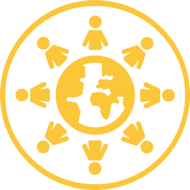Washington State Social Studies Learning Standards
(View Complete Item Description)Social studies is a vital component of education in Washington state. The Office of Superintend¬ent of Public Instruction (OSPI) envisions “all students prepared for post-secondary pathways, careers, and civic engagement.†Additionally, the National Council for the Social Studies states, “The primary purpose of social studies is to help young people make informed and reasoned decisions for the public good as citizens of a culturally diverse, democratic society in an inter¬dependent world.†Students who receive quality instruction in social studies are engaged in learning that promotes inquiry and thoughtful civic participation. With this in mind, we are pleased to introduce OSPI’s updated Washington State K–12 Learning Standards for Social Studies. Our hope is that you will find these standards to be rigorous, thoughtful, inquiry-driven, and organized for easy accessibility.
Material Type: Teaching/Learning Strategy



















